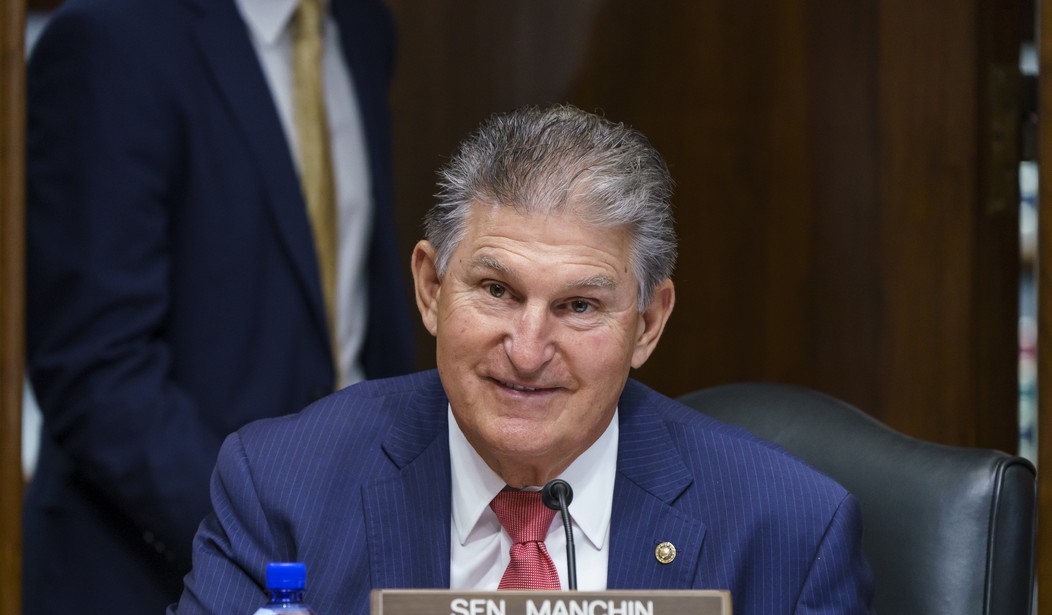Dems have been begging him to back H.R. 1, their massive, kitchen-sink voting reform bill. No can do, he said. Fine, they replied, then tell us what you will support.
Today he told them. He’s out with a list of proposed changes, some of which Democrats will like, some of which Republicans will like, in hopes of getting to 60.
I don’t think there’s a prayer since any Republican support for a Democratic voting bill will be deemed an endorsement of “cheating” by the GOP base. Any suspense over Manchin’s bill has more to do with the left than the right. Are progressives in the Senate willing to grit their teeth and back his proposal simply to force Republicans to be the one to tank it? If the bill’s destined to crash and burn, it’d be nice for Schumer if he can go out afterward and say, “All Democrats were for it, but as usual Republicans hate the idea of voting rights.”
Here’s the meat of it. What do we think of this?

The big sweetener for Republicans is mandatory voter ID, which is broadly popular among the public but a potential dealbreaker among Democrats. Dems also won’t like the part about allowing state election officials to maintain voter rolls by cross-checking them with other government databases. Voters being knocked off of Georgia’s rolls due to inactivity was one of Stacey Abrams’s grounds for claiming voter suppression by Brian Kemp by 2018.
Is that enough to bring Republicans on board? They’re not going to like automatic voter registration at the DMV or a ban on partisan gerrymandering, as their strong performance in state races last year has put them in a position where they might be able to take back the House majority in 2022 purely via redistricting, without actually flipping any seats. And they might not like Manchin’s view of absentee voting, as he’d require all states to make it available to people with a valid excuse.
On the other hand, that’s short of what Democrats want, which is mail voting without any excuse needed. If Manchin’s bill passed, some states might stick with excuse-only absentee voting instead of switching to a no-excuse system by pointing to federal law and saying that they’re doing what’s required and that should be good enough. He’s sought the middle ground here. My guess is that it’ll alienate both sides more than it’ll bring them together.
There are other provisions on page two of his wish list, some of them unconstitutional (e.g., requiring presidential candidates to disclose their tax returns) and some of them obvious nonstarters for Republicans (campaign finance reform). At least one progressive whose name you’d recognize has said he’d probably vote for the bill, which may bode well for Democratic unity. But Democratic unity isn’t enough: Manchin continues to insist that voting reform needs to be bipartisan in order to be legitimate and it’s all but unimaginable that 10 Republicans will vote for this. So long as there’s a 60-vote filibuster, his voting bill is likely dead.
Which raises a question: What if Manchin isn’t as committed to a 60-vote filibuster threshold as we thought? A few days ago Ross Douthat made the case for keeping the filibuster but lowering the threshold to 55 votes, just as the current threshold of 60 was lowered from 67 decades ago. Manchin was on a conference call with donors two days ago and apparently made some news in that regard:
“That’s that’s one of many good, good suggestions I’ve had,” he said of lowering the cloture total from 60 to 55. Manchin went on to discuss the last time the cloture threshold was lowered, in the 1970s…
Manchin acknowledged that publicly he had drawn a line at 60, but said that he was open to other ideas. “Right now, 60 is where I planted my flag, but as long as they know that I’m going to protect this filibuster, we’re looking at good solutions,” he said. “I think, basically, it should be [that] 41 people have to force the issue versus the 60 that we need in the affirmative. So find 41 in the negative. … I think one little change that could be made right now is basically anyone who wants to filibuster ought to be required to go to the floor and basically state your objection and why you’re filibustering and also state what you think needs to change that’d fix it, so you would support it. To me, that’s pretty constructive.”
Is Manchin about to buckle on the filibuster? Sixty votes is a heavy lift but 55 is feasible with Collins, Murkowski, and Romney always open to compromise plus four more in Toomey, Blunt, Portman, and Burr who are headed for retirement. The possibility that he might shrink the threshold if his voting bill is blocked is a powerful incentive for the Democratic caucus to unite behind it, including progressives who might dislike the provisions about voter ID, since the closer they can get to 55 on the bill the more tempted Manchin will be to go semi-nuclear.
But it’s also a powerful disincentive for Republicans to compromise. If GOP senators know that Manchin might reduce the threshold to 55 in the name of passing his bill, thereby curtailing their power on all sorts of unrelated matters going forward, they might unify and refuse to provide any votes for it. They’d be daring Manchin to nuke the filibuster altogether and pass it on a party line with 50, the very thing he doesn’t want to see happen.
By the way, there’s one momentous type of electoral reform that’s completely and inexplicably absent from H.R. 1 and from Manchin’s proposal. If you read this post on Sunday, you already know what it is.








Join the conversation as a VIP Member